It seems to me that Kabukibu! has followed a very consistent and somewhat predictable quality arc. It’s gotten steadily better since the first episode, and given the type of talent behind it it always seemed likely to end up being a very good show. And that’s exactly what’s happened – it may not be Tsuki ga Kirei or Uchouten Kazoku, but this widely ignored little series has become one of the ones I most look forward to every week.
It seems quite fitting that the theme of this episode (and to some extent, the entire series) is making kabuki understandable by the masses without losing the essence of what it is. Kabuki is a strange art form in that to a large extent even for the Japanese, it’s the exotic nature of it that draws people to it. Both it and rakugo may have started out as art for the masses, but that was in very different times. Rakugo was never as remote from the daily lives of middle-class Japanese as kabuki is today, but much more so than rakugo kabuki appeals to those looking for an escape – a taste of something very different from those everyday lives.
So how does one take that and make it something the common people can identify with – much less high school kids? That’s a real conundrum, just as it is to make an anime about kabuki and make it something an audience overwhelmingly made up of young adults can identify with. And that’s the subject of this episode, which is another fascinating take on the paradoxical nature of kabuki in the modern world. Kuro is wrestling with how to make it something his classmates will understand and enjoy (after overhearing a couple of girls say they couldn’t understand what was going on in their first performance).
I don’t think the parallels between Kuro-kun’s problem and Kabukibu!’s problem were intentional, but who knows – they were certainly obvious. Kuro, wisely, wants to avoid explanations – “no one likes to listen to those” (bless this, the rare LN that understands that). He also wants to modernize the language without losing the hypnotic rhythm of it (Shakespeare presents similar challenges). Some things are easy – like giving everyone stage names, so that the club can have an omuko working the crowd. But the contemporization problem is a thornier one. As Sensei’s father says. the “barriers” kabuki throws in front of the audience are part of why most fans enjoy it. Take those away, and it what you have left still kabuki?
Then there’s the matter of fun – the stage names certainly play into that. Kuro is trying to make kabuki fun, and Jin’s grandfather is trying to get him to have fun (and fix him up) – it’s not hard to see that these trains are going to collide at some point soon. Fun is part of the reason Kazuma Katsumi (Yamamoto Kazutomi) has decided to bolt the drama club and, like Riri, join the kabuki group. The drama club prez really is an unpleasant wretch (and a misandrist to boot), and Kazuma comes to realize that sticking around amounts to an act of masochism. But it’s the script Kuro finally comes up with that ultimately convinces Kazuma to come on-board. The inspiration for it is Riri’s experience reading an American sci-fi novel first in Japanese, then English – which should give some clues as to where Kuro is headed here.
The fly in the ointment is Shin’s decision to quit the group – prompted by the arrival of his mother. It seems she’s rarely at home (or even in Japan) and Shin would rather do anything than make her happy – and since doing his kabuki makes her happy, he declares he’s done. He’ll be back – the tireless terrier Kuro will see to that. I like these cases where the protagonist perfectly reflects the personality of the series as a whole, and Kuro certainly does. Kabukibu! isn’t dark or subversive, but it is upbeat and relentlessly energetic, just like Kuro. It’s a series (like Yowapeda, another of those perfect protagonist-series pairings) where the author’s love for the subject is obvious – and infectious.


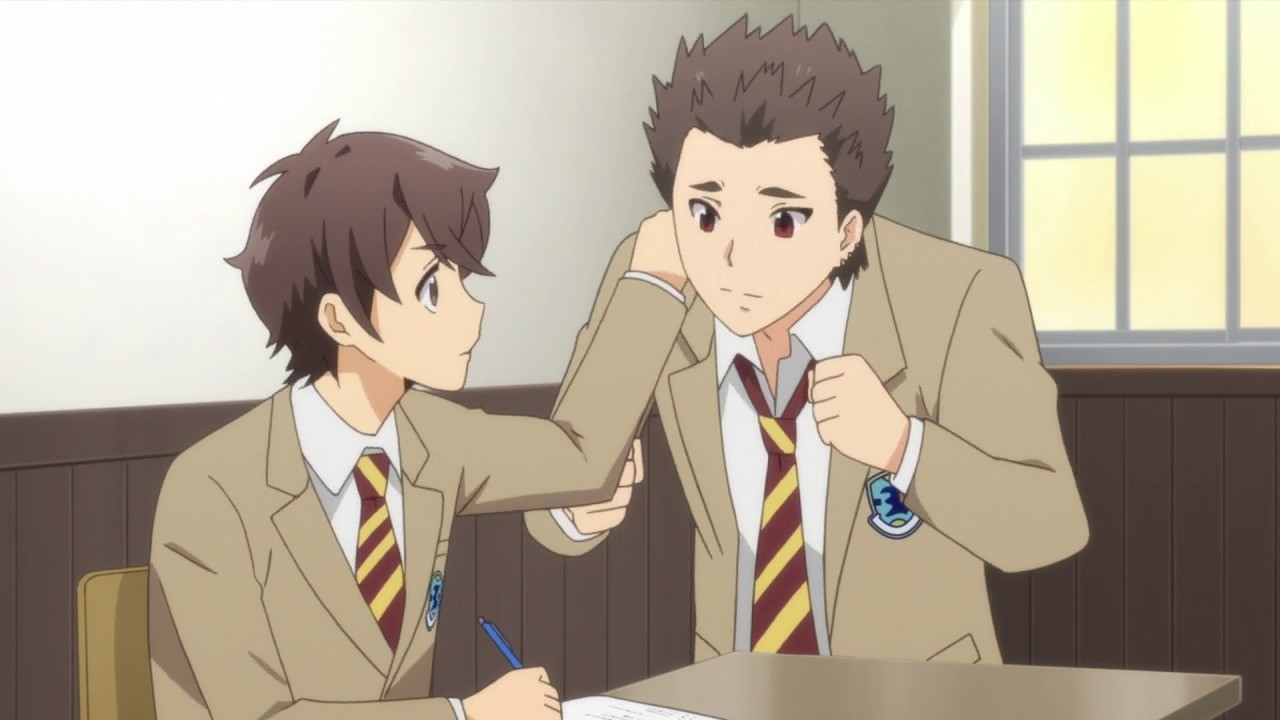


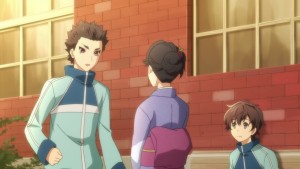
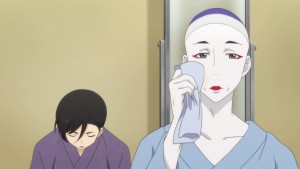



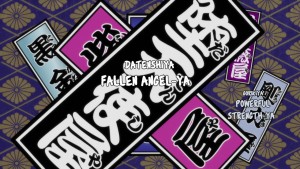
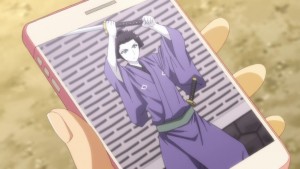
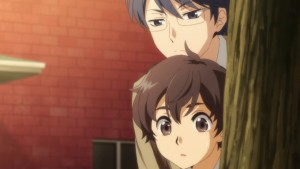
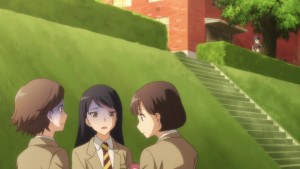
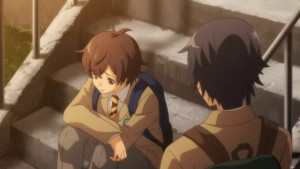

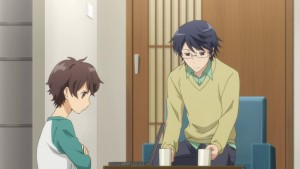
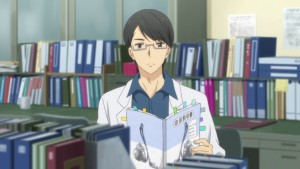
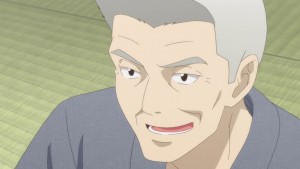
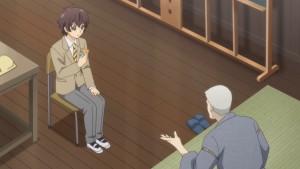
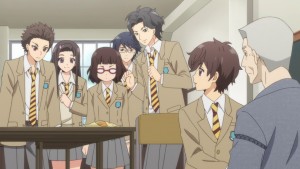

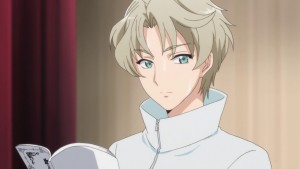
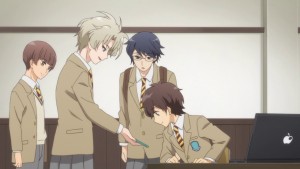
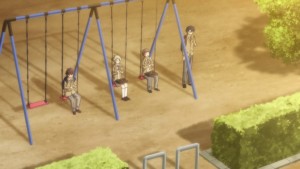
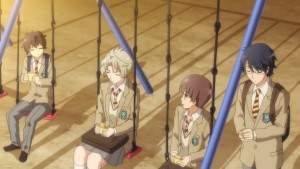
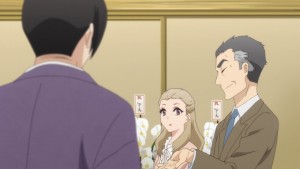
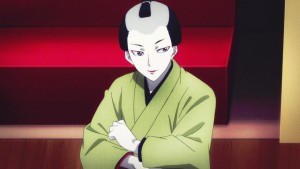
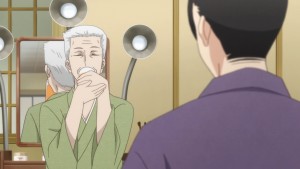
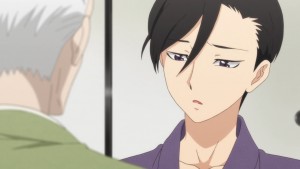
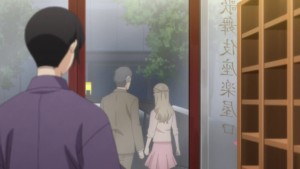

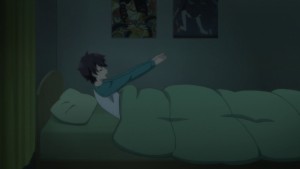
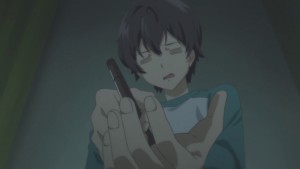
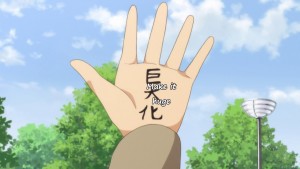
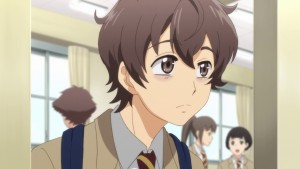
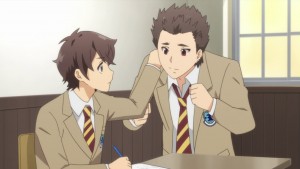
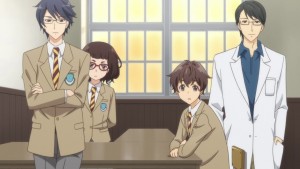
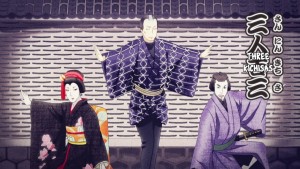
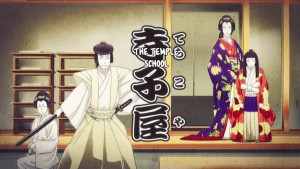
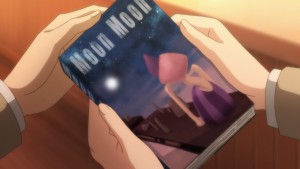
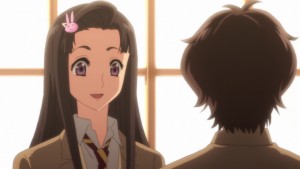




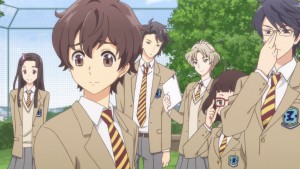
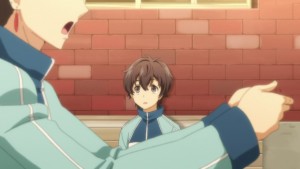
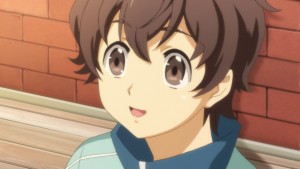
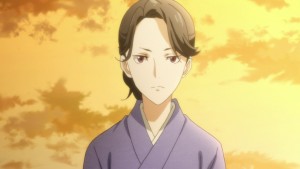

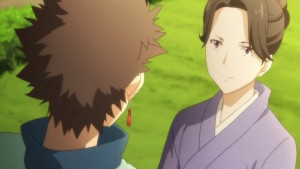
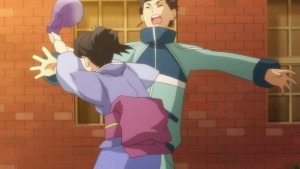
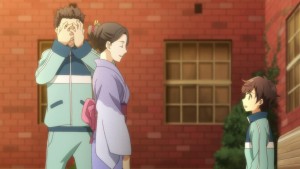


Zilla
May 13, 2017 at 5:54 amThis was a good episode, but there was a LOT of “women hitting Shin” comedy in it. If they don’t start utilizing her better, I can see myself disliking Maruko. Right now her only purpose seems to be to magically create their wardrobe and to physically attack Shin. And since I don’t like the “women beat up men” comedy/trope, well, that leaves very little good of her to counter balance the bad. I can see that Shin’s character needs someone to shut him down at times, but a shoe to the face every time is a little . . . ugh. (sorry, pet peeve hit hard this episode)
I like that we got to see Jin’s circumstances before we got his over-reaction in school. It helps keep his character likable.
wang
May 13, 2017 at 8:31 amSince she “magically create their wardrobe”, I think she has the right to be violence to some extend. And the fact that Jophiel can be annoying sometime just add to her favour. At least I’m still find her violence funny and not annoyed by it yet.
Guardian Enzo
May 13, 2017 at 8:50 amI don’t find it funny at all myself, but so far it’s been rare enough hat it hasn’t posed a major problem for me.
Dop
May 14, 2017 at 8:30 amPersonally, I think every time Maruko whacks Shin with her shoe, she’s doing the world a service as she only does it when he’s going off on one.
Say
May 13, 2017 at 8:55 am“Shin would rather do anything than make her happy – and since doing his kabuki makes her happy, he declares he’s done.”
Mmm…I thought he was afraid of not living up to expectations, as if she can’t believe he’s doing kabuki seriously. I bet on her to be very strict.
Flower
May 13, 2017 at 9:50 amWell said on the episode in general, and I loved the fact that it so succinctly identified and “got the audience thinking” about these sorts of things that older, more “culturally specific” art forms (like Kabuki) face when a new generation encounters it.
To keep the essence of the art while bridging it to a new audience is indeed one of the trickiest tasks, and the series deftly presents it in this episode. ^^
Dop
May 14, 2017 at 8:35 amYeah, this is a good show that’s not getting a lot of attention by due of its very subject. Do wonder how they’re going to update things – project surtitles translating the flowery speech into modern terms? Update the plays to the modern age the way we do with Shakespeare?
It’ll be interesting to see.
But yeah, Shin’s mum, is she a mob boss or something? The way she switched from ‘sweet and demure’ to ‘takes no shit’ was awesome.